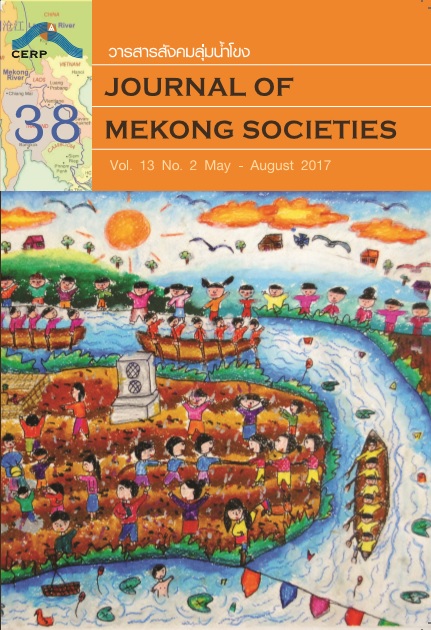Power Relations in the Commodification of Local Culture: A Case Study of a Local Fair Organized at the Thung Samrit Memorial
Main Article Content
Abstract
This article examines power relations in the commodification of local culture through a case study of a local fair organized at the Thung Samrit Memorial, Phimai district, Nakhon Ratchasima province. As qualitative research, participant observation, non-participant observation and semi-structured interviews with key informants and other informants were employed as main data collection techniques. The results show that during the first period when this local fair was held, it was organized by the local community and for the community. Therefore, the pattern of power relations was determined in the context of the local community with negotiations between the fair’s organizing committee and local villagers. In the second period, the local community remained the key player in organizing the fair with some financial support from local politicians to revive and conserve the community’s local history. However, during the third period there was a majorchange in the pattern of power relations, since governmental agencies and the private sector also took part in managing the fair. Thus, the local community had to negotiate with external power structures, both political and economic, on the issues of how the fair would be organized as well as who would be in charge of looking after the monument-the community or the concerned government agencies.


